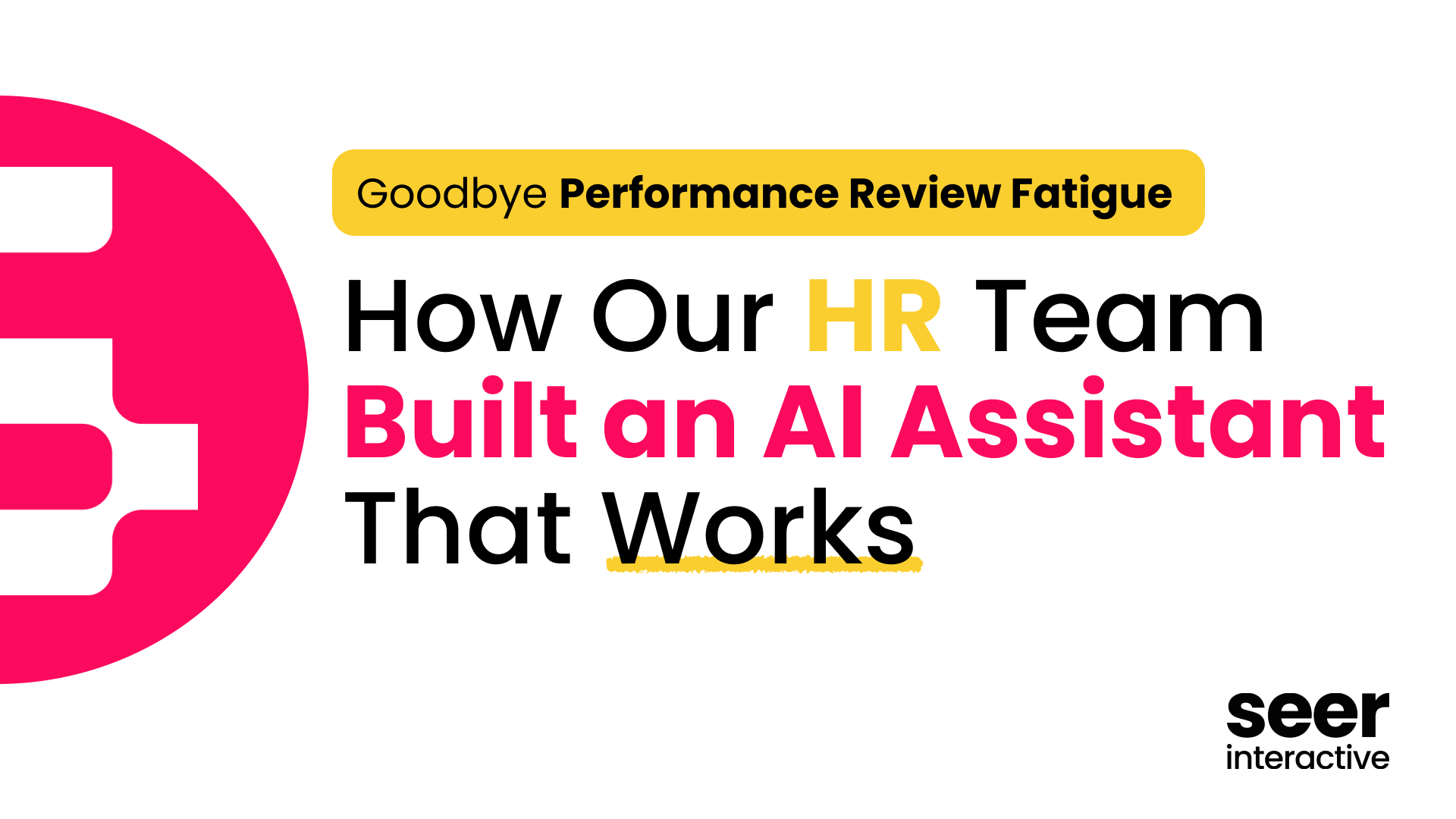A lot happens in sales. A single email or call can change the trajectory of that deal, the monthly goals, or even quarterly results.
We’re going to dig into five actions that a point of contact takes or doesn’t take and understand the right way to respond to these situations assuming positive intent for all.
Beyond that, we’ll have a look in the mirror approach knowing positive intent could also mean acknowledging that we screwed up at some point and the dropoff is because of our actions.
I'm getting HAMMERED with questions!
When I bought my first new car, I got duped. Why? They gave in on price down to what I wanted, but then increased the interest rate. I didn’t catch it and when it came time to sign I just said fine vs calling out the 2% increase. The second car I purchased new, I came in prepared.
- Pinned dealerships against each other for the same car
- Communicated only through email until we got to the closing stage.
- Pushed back on the interest rate.
- Asked about every line item
- Removed the unnecessary add-ons
- Haggled on maintenance that could be included
- Brought my 2 year old, who can’t sit still, to my advantage to say “listen, she’s going a little crazy, if we can’t figure this out today, I’ve gotta go.” (and actually be willing to leave if it came to that)

Why is the expectation any different when we come across a potential client who has a TON of questions and wants guarantees. They’ve likely been burned in the past.
If you come into these conversations assuming they mean well and have worked with a bad agency in the past, it will be easy to listen to needs and say back the concerns you’re hearing instead of being defensive. This is your chance to empathize with the POC or "Point of Contact".
For example:
Are they demanding some type of pay for performance model? Let them speak.
“It sounds like guaranteeing performance is really important to you.” - you can end that sentence and then have the silence make them expand if they only gave a one word answer, or you could continue it with “can you let me know the concerns you have around performance?”
Label it, let them speak, ask “is there anything else?”, then say back what you heard.
Then note how you’re able to satisfy exactly what they told you. Back it up with a referral. Back it up with It also lets you know if this lead is going to be a fit or if they truly have unreasonable expectations.
By assuming positive intent, you don’t come off as defensive and getting your bat out to beat these questions down. Instead, you get to understand where they’re coming from and have the lead tell you exactly how it can be resolved; even if that resolution means you’re not the right fit. Time saved.
They cut their budget after they said they had more!
Your gut feeling is that you’ve been part of a bait and switch. They’ve taken you down this journey and were secretly hiding their real budget all along.
That’s unlikely and the easiest way to portray yourself as the victim. Cut that out.
Assuming the positive, any of these next situations could have happened:
- All marketing budgets were cut, not just the one you’re after
- Employees were cut and yet somehow they still fought for this budget for you, even if it’s less.
- Their budget was unexpectedly taken back internally for another higher priority project
- Someone above them used their budget elsewhere and it’s gone.
For that last situation - that’s a look in the mirror one where if you didn’t know you weren’t speaking with the decision maker, you should have dug in harder and that’s a lesson for next time. That’s on you.
ESPECIALLY right now (June 2020), budgets are a crapshoot. They’re there one day, gone the next (and maybe your POC as well!).
Let’s break this one down assuming positive intent.
Example: Budgets dropped 25% from what you were originally told.
First step, you’re going to want to have some empathy vs feeling burned. Sometimes saying “that sucks” is the clearest way to show you get it. After that, questions like:
- Is everyone else alright?
- Were any jobs cut?
- How are budgets being prioritized now?
- How do you report your value up the chain?
- Or even most simply “how can I help best right now”
What I can guarantee is the POC will not want to hear any guilt trip. Zero. That makes this ALL go away if you pound down that path.
Instead, use this as a springboard to build trust, establish authority, and understand how initiatives are prioritized at the organization so the next time this comes up -- you’re ready.
The POC stopped speaking with me at the finish line!
How rude. They just stopped? That’s likely a bunch of crap. Let’s break it down.
Step 1:
Whenever someone doesn’t respond, send that followup email including something VALUABLE that connects with dollars you can earn or save them. You’ve been speaking with them, what is it that would be a value add?
Step 2:
After that email, if there’s no response, send another similar value add. Still no response?
Step 3 requires one.
Step 3:
Title: It sounds like [insert service] isn’t a priority anymore
Tom,
It sounds like GA360 isn’t a priority anymore, and that’s OK! Whenever this comes off the backburner, I’m here to help.
Cheers,
Adam
Assuming positive intent REQUIRES you to know there’s a reason they aren’t responding.
They didn’t just decide that the hours of calls, qualifications, maybe a deck, and reviewing what you’ve discussed was just something arbitrary to do during their workday.
More than likely, they’re busy and you haven’t given them a reason to make it a priority.
It’s not for them to understand you, it’s for you to understand where they are and meet them there.
Here are some things that have happened when a POC has stopped responding to messages:
- Their next email bounces - they’re no longer with the company.
- Death in the family - they’ve been on bereavement leave. I’ve also had ones stop responding and after this saying how their priorities have changed and they need some time. Cliche or not, a death makes people reevaluate all choices, regardless if you’re going to give them a 20x return on their investment or not.
- Internal fire, where they’re dealing with a major PR crisis and can’t dedicate a minute elsewhere.
- Internal politics simply can’t bring this to the top of the priority pile right now.
- There wasn’t enough of a case made by ME to break through as a top priority.
Send that email as your third unresponsive messages.
Best case - they’ll respond and you’ll get a date when they’re ready to begin.
Second best case - you’ll get a “no, it isn’t a priority anymore” or “no, you didn’t show me enough value”. No more wondering! Great. Let’s learn what could be better and ask for more feedback.
Worst case - they don’t respond, which might not be so bad as it confirms it’s not a priority.
We had a verbal and it still fell through...
Scene: Your friend calls you - there’s a spot on the street just outside the apartment building. He even put a folding chair in the spot to reserve it for you. You get there, it’s nowhere to be found.
BUT YOU HAD A VERBAL?!
End Scene.
Verbals make me 75% confident the deal will come through. There are times when PSA negotiations and timing just makes things go to hell, but the tough pill to swallow here is that most of the time the lead didn’t do anything wrong, you simply missed the signs. Pull out that mirror again. Assuming positive intent includes the possibility that the blame is on you as the salesperson.
It’s highly unlikely your POC pulled the deal out from under you. Unless the POC literally says that, I never want to hear that as a reason why we lost a deal. There’s something that was missed.
Assume positive intent also requires self-reflection/ Maybe another agency showed them something we didn't. It could also mean another agency found a higher up decision maker and showed value where we didn’t even have a seat at the table.
The last part is to understand what was important to them. We lost a deal once because “this agency was closer in proximity”. It’s a national brand. We never heard that as something that was a need. Was it their job to disclose or is it our fault for not asking and just assuming? We’re going with the latter.
We agreed on pricing and now they want a 20% reduction before signing!
A father of a boy on my little league team came into the dugout with a pack of gum. One kid asked him for a piece, he said sure. Another kid came up, he said sure. A third one came up, he said sure. He then turned to the team and said “if any of you wanted one of these, too bad, you don’t get nothin you don’t ask for.”
A steep reduction request has happened only twice for me in recent memory. It caught me off guard at first, but then reality sets in. Maybe this guy was the kid next to me on the bench, pissed he didn’t ask for a piece of gum all those years ago. Maybe he’s coming from a genuine place of “it doesn’t hurt to ask”.
Car prices can drop several thousand in negotiations. 20% can suddenly be knocked off that couch you wanted and it’s your final offer. Even a house can suddenly drop from $399k to $339k overnight if the buyer floats it and the seller is motivated.
There’s no harm in asking. You as the salesperson can’t be offended they asked. That’s not assuming positive intent.
The other positive intent I see here is that this person is a steward of the company’s money. She needs to make sure she gets the best deal. Heck, she would probably be compensated for getting this deal down 20%. It’ll look good during her review, it could minorly help her career, family, and it’s just a question.
If you don’t want to play with the question, a response of “I’m not sure how we can do that and still hit anywhere near the goals we discussed.” and then don’t say a word. You’re not saying no, you’re saying you don’t know how and it’s in their court to find a solution if they want one. Most shut down after this.
On the flip side, if they can ask that, you can morph the deal into their new pricing terms if you want to. “Sure! We can knock 20% off so long as you’re alright with a 9 month project” or “For one service line? Sure, we can do just PPC for that.”
There are a dozen more scenarios and after living through many over the last two years, you can rest your head much better at night assuming positive intent on all fronts. It also regularly helps you see your own faults vs passing the buck and makes you a better salesperson, marketer, and empathizing human.
Your Next Steps:
Reevaluate some of the deals you lost, try that email template above, and start out on your best foot forward the next time you’re met with one of these challenges.



